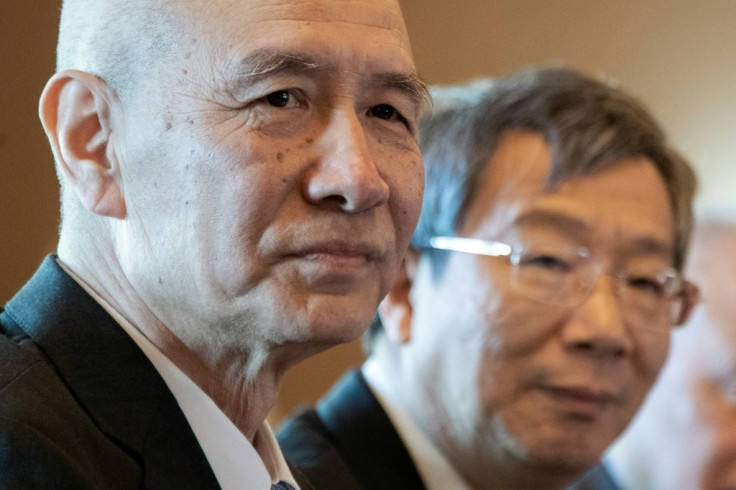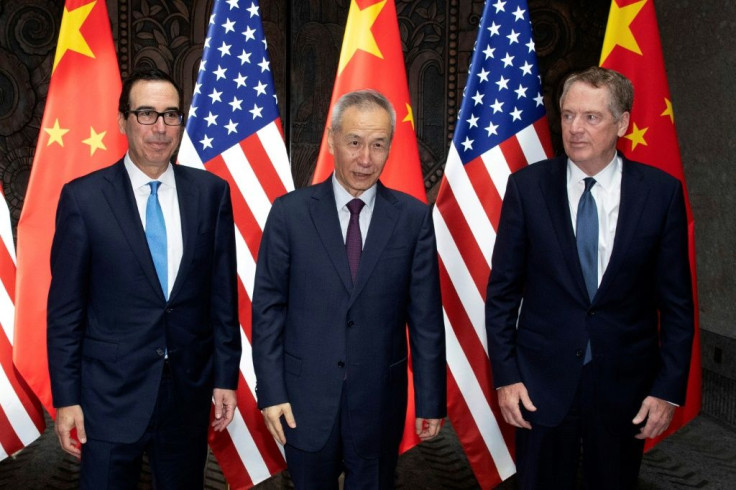Dow Jones Futures Down 250 After China Update On Trade Talks: 'No Progress'

It's now almost certain the Trump administration will levy the postponed 30% tariffs on Chinese imports worth $250 billion on Oct. 15 following the failed deputy-level trade talks on Tuesday and the widely anticipated collapse of the main talks scheduled for Thursday at Washington D.C.
The U.S. and China made "no progress" in deputy-level trade talks. Sources cited by U.S. media said the preliminary deputy-level talks stalled on the issue of forced technology transfers, which China refused to discuss at all. This issue was to also have been taken up at the main talks scheduled for Thursday.
"They have made no progress," a source told the South Morning China Post.
The failure and soon-to-be failure sent the Dow Jones Industrial Average futures reeling Wednesday. Dow futures lost more than 300 points at one point, while S&P 500 futures dropped 0.4% and NASDAQ 100 futures also losing 0.4%. Shares of key stocks dependent on global trade such as Apple, Caterpillar and Intel fell in after hours.
Adding to the gloom surrounding the talks' twin failures is the confusion arising from the Trump administration’s continuing claims of progress and Beijing's statements to the opposite.
U.S. stocks lost ground on Monday and Tuesday as investors dismissed the prospects for a grand trade deal. Stocks bounced back Wednesday on news a partial deal might be possible on Thursday. These expectations have now come to naught with the Trump blacklist and visa restrictions and China's inevitable retaliation.
Experts affirm the failure of the talks to even reach a compromise partial trade deal was ensured by the Trump administration's decisions since Monday to bar U.S. firms from doing business with 28 blacklisted Chinese tech firms and government bodies as punishment for China repression of the Uyghurs and other ethnic minorities.
The administration on Tuesday widened those sancctions to include the non-issuance of U.S. visas to Chinese government officials it claims are involved in this ongoing ethnic represssion that aims to stamp-out resistance to China's communist leaders.
State-owned Chinese media said China plans to retaliate for the visa restrictions with its own visa restrictions on U.S. government officials and business firms. China's displeasure at the Trump administration blacklisting 28 government agencies and private firms was made known by its hinting the two-day main trade talks will now be limited to just one day.

© Copyright IBTimes 2024. All rights reserved.




















